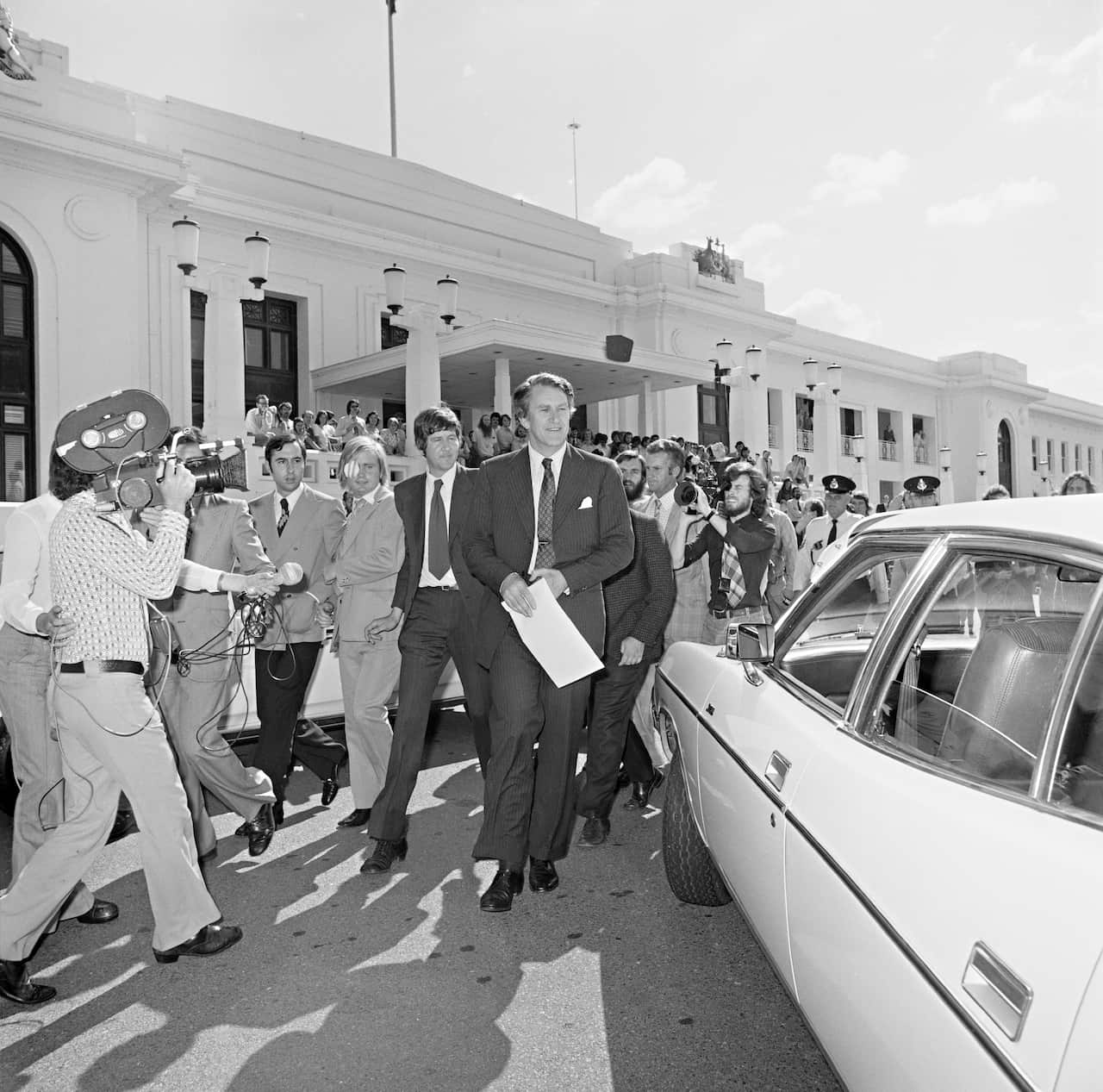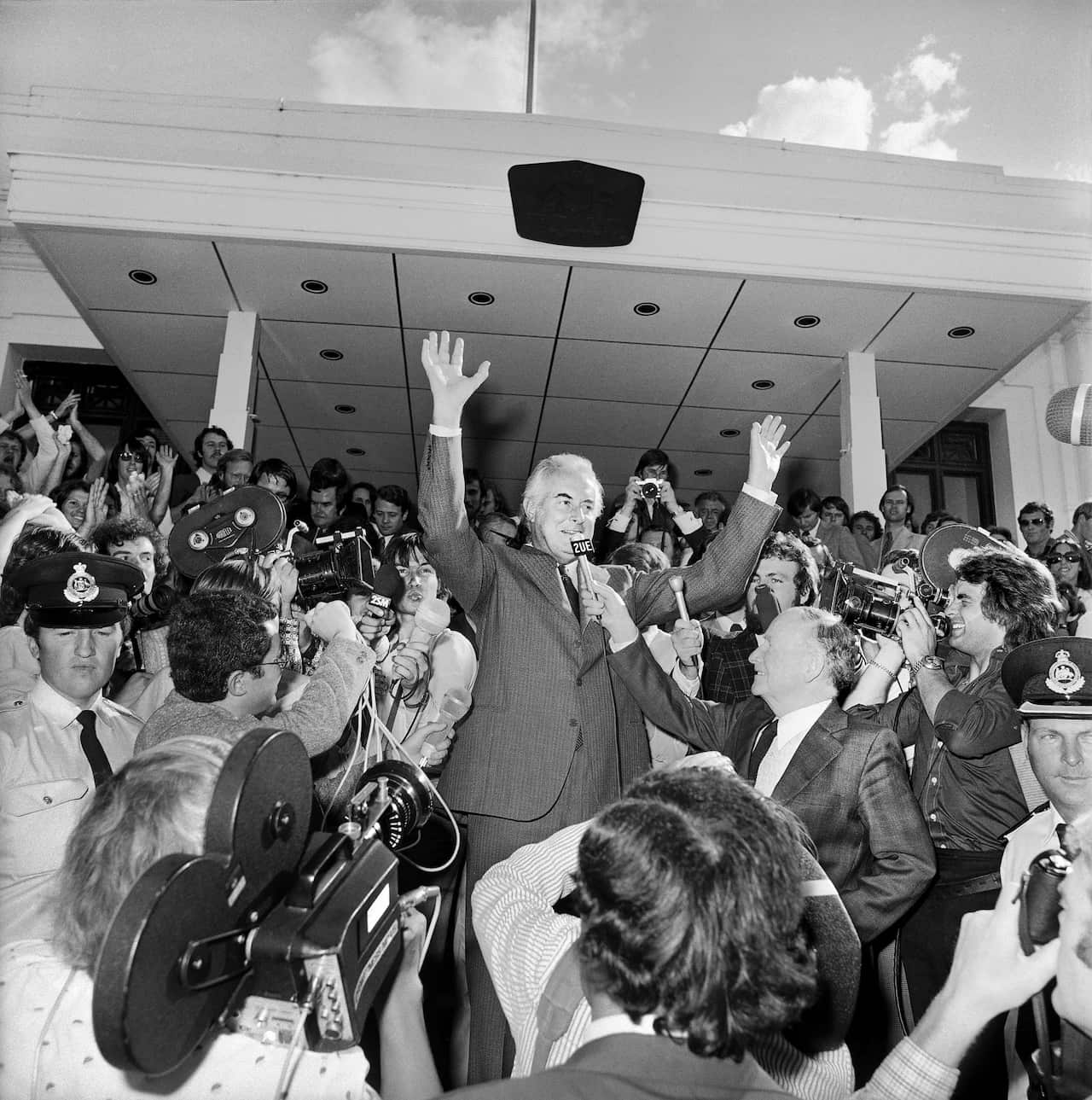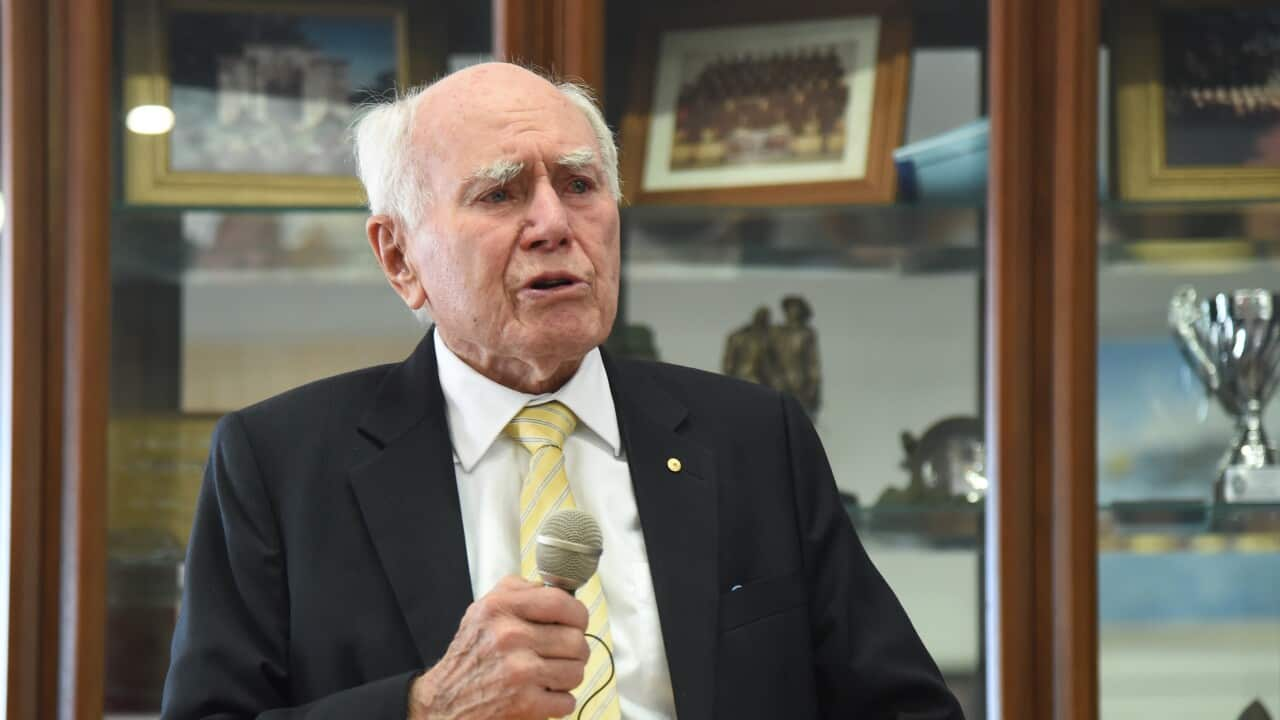Former prime minister John Howard says there was "no alternative" but to dismiss Gough Whitlam, recalling the moment 50 years ago today.
Three years into his term, the Labor prime minister was dismissed by then governor-general Sir John Kerr, who appointed Opposition leader Malcolm Fraser as caretaker prime minister following a meeting with Whitlam.
The move was the culmination of months of controversy, but ultimately took place due to a deadlock in the Senate, where the Opposition was blocking budget bills, which put the government at risk of running out of funds to pay for essential services.
The fresh-faced Howard was elevated into Malcolm Fraser's cabinet as a result of the decision, which five decades on, he thinks was the right move.
"I felt very sympathetic towards Kerr. I felt that he was the meat in the sandwich between two very powerful, determined men who each behaved in their own way in a very ruthless pack. And I don't use the word ruthless there pejoratively," he told ABC radio on Tuesday morning.
"I felt that the action Kerr took was the only one that could have resolved the situation, absent either Fraser backing down in blocking supply or Whitlam advising a general election for both houses of parliament."
He said while Kerr knew it was "dramatic and controversial", he correctly assessed "there no alternative", but that the decision weighed heavily on Kerr in the months to follow.
Reflecting on the call, Howard said the greatest lesson was how "durable and workable" Australia's constitution is, ultimately, "allowing the people of Australia to decide the country's future".

50 years on: PM labels the dismissal 'a calculated plot'
The view is in stark contrast with Prime Minister Anthony Albanese, who has labelled the dismissal of a democratically elected Labor government as "unfair".
"It was seen to be this intervention that was very unfair, that was something that they didn't expect could ever happen in Australia," he said on ABC radio on Tuesday, recalling his history teacher bursting into his classroom in year 7 to make the announcement.
The previous evening, in a fiery speech, Albanese called the dismissal a "partisan political ambush".

"The dismissal was a calculated plot, hatched by conservative forces which sacrificed conventions and institutions in the pursuit of power," he said.
"And the result of the election that followed does not wash any of that away," he added, referring to the election of Fraser the following month.
"Behind all the various schemes and subplots that will be unpacked and revised ... lies an overt refusal to respect the mandate or even acknowledge the legitimacy of a Labor government."
The decision followed a controversial tenure for Whitlam following Labor's federal election win in December 1972.
Whitlam's agenda, celebrated by Labor faithful after what Albanese described as 23 years in "political wilderness", included reforms such as establishing the precursor to Medicare, abolishing university fees and conscription, advocating for the rights of Indigenous Australians, and abolishing the White Australia Policy.
However, tough economic conditions, soaring inflation and several political scandals put the Labor government under the microscope, eroding public confidence.
While the dismissal is viewed as a betrayal by some, for others it's an indication of Australia's constitution working. Either way, it delivered one of the most explosive moments in Australia's political history.
This includes Whitlam seizing the microphone on the steps of Parliament, stating: "Well may we say God save the Queen — because nothing will save the Governor-General."
A moment immortalised with a Whitlam statue, announced by Albanese on Monday.
For the latest from SBS News, download our app and subscribe to our newsletter.

